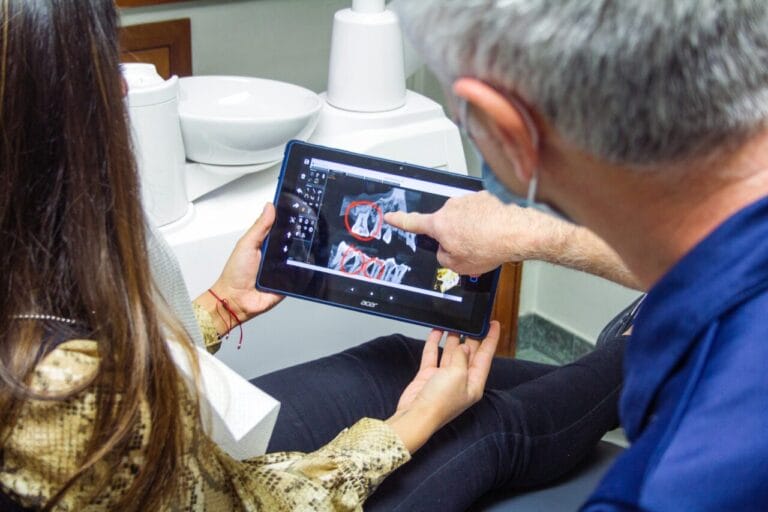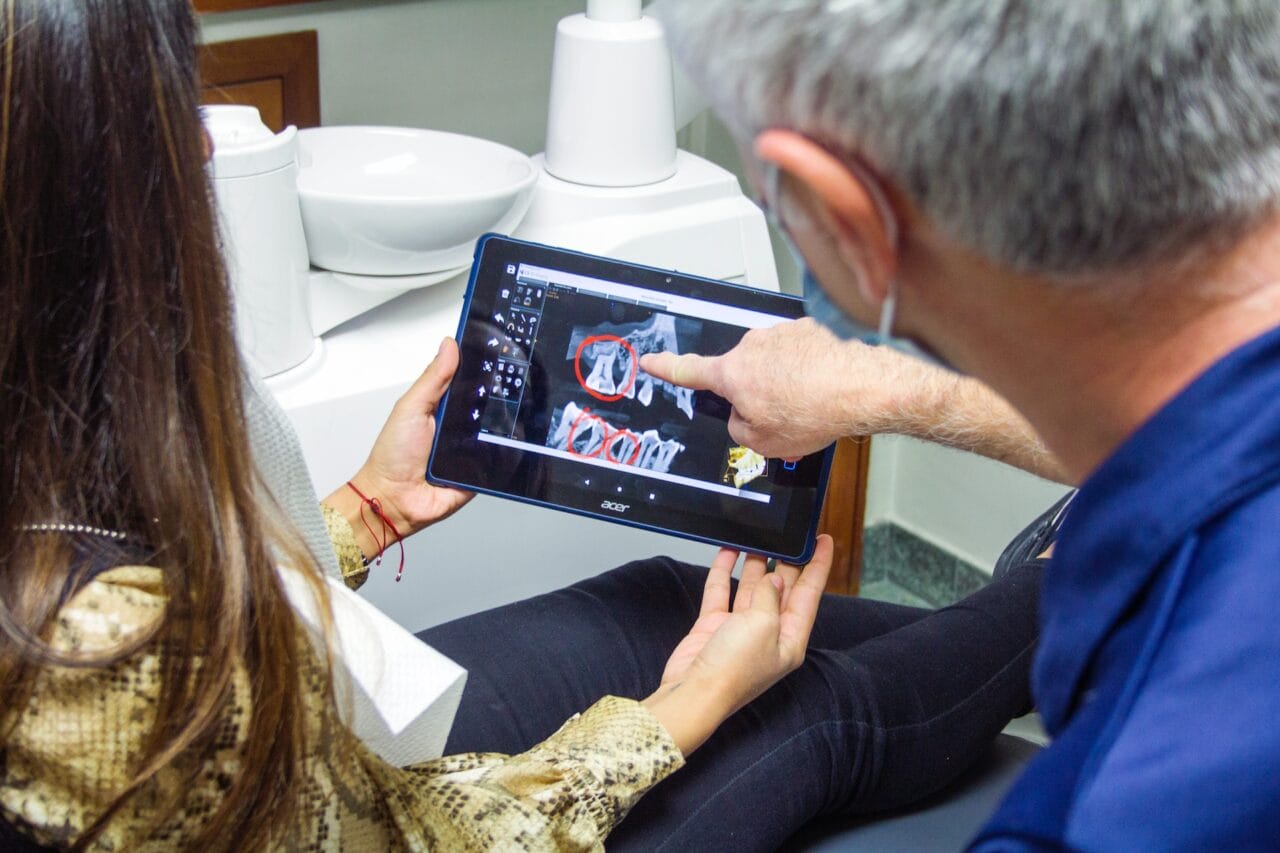Do I need to remove my wisdom teeth? This is a common question and dilemma for many adults and can leave you uncertain about the best course of action. While having wisdom teeth isn’t bad, it can occasionally lead to complications.
If this question is nagging at you, find out when to bid farewell to your wisdom teeth.
Wisdom Teeth Explained
Wisdom teeth, commonly known as “third molars”, are the last adult teeth that develop in your mouth. You’ll find these teeth in the back of your mouth.
Some wisdom teeth erupt normally and without difficulty, but others may become partially or completely obstructed (impacted) within your gums or jawbone. And issues can arise from their growth, which can harm your oral health. This is why your dentist may recommend wisdom tooth extraction.
In most cases, wisdom teeth emerge between 17 and 25 years. But it’s crucial to remember that you might not be able to tell if your wisdom teeth are impacted by merely gazing in the mirror if you do have them.
Benefits of Keeping Your Wisdom Teeth
Here are the perks of keeping your wisdom teeth:
Functionality
When in good health and proper alignment, your wisdom teeth are reliable for chewing and grinding alongside your other teeth.
Keeps Other Teeth in Shape
Keeping your wisdom teeth preserves the natural structure of your jaw. This stops any neighboring teeth from shifting from their original positions. This, in turn, helps safeguard against potential dental woes down the road.
Enduring Support
Wisdom teeth aren’t just tough; they’re also durable. Their sturdy nature offers a durable backup plan, standing firm to pick up the slack if your other teeth decide to retire or face unexpected challenges.
9 Signs You Need a Wisdom Tooth Extraction
Your dentist will typically recommend removing your wisdom teeth if they show signs of an issue. Here are nine signs you may need to talk to your dentist about removing your wisdom teeth.
1. Wisdom Tooth Impaction
Sometimes, your wisdom teeth don’t quite make it through your gums, and we call this wisdom tooth impaction.
These teeth might take peculiar angles while growing, which can spell trouble for the other teeth around them. In some cases, they go as far as growing in the wrong direction, delving into your jawbone. This can lead to unwelcome situations like:
- Jawbone cysts
- Infections
- Gum problems
- Bad breath
Keep an eye out for these symptoms, and when you have impacted wisdom teeth, it is a clear sign that you need to remove them.
2. Frequent Bad Breath
Your wisdom teeth might just be the culprit if your breath takes on an unpleasant smell. Decay caused by these latecomers can trigger the growth of bacteria that not only smell bad but also affect your mouth’s health.
Consider that persistent bad breath as a crystal-clear indication to show those wisdom teeth the exit sign.
3. Gum Inflammation
Your gums protect your teeth, but when unwelcome guests like food particles, plaque, and bacteria sneak in beneath your gums, it leads to gum inflammation.
In this case, the gum tissue swells, turns red, and becomes sensitive to even the gentlest touch. Sometimes, your wisdom teeth may cause gum inflammation by growing incorrectly.
4. Painful Jaw
In your jaw, each tooth plays its part to prevent any issues. But sometimes, your wisdom teeth can impact the role of each tooth, leading to painful consequences.
Because wisdom teeth show up later than others, they might appear at such odd angles that they throw off the arrangement of your teeth. This will cause discomfort and even pain.
Often, this can manifest as a nagging ache at the back of your jaw or difficulty when you try to open your mouth wide. If you notice these symptoms, it might be a sign that you need to remove your wisdom teeth.
5. Oral Cysts
You can imagine an oral cyst as a sac packed with fluid. With an impacted wisdom tooth, these cysts can start cropping up in your gums and jaw.
Over time, they can spell double trouble – not only can they cause the roots of nearby teeth to rot, but they might also go after your jawbone’s well-being.
These cysts can even become tumors in some severe scenarios, requiring jaw surgery and other invasive treatments.
6. Tooth Pain
If you’re feeling pain or sensitivity when brushing or eating, especially towards the back of your mouth, your wisdom teeth might be the culprit.
If these signs become significant discomfort, a wisdom tooth extraction procedure could be your ticket to relief.
7. Tooth Decay
When your wisdom teeth fail to come out cleanly, they disrupt the synergy between others. This can lead to decay in nearby teeth.
Neglecting to remove your wisdom teeth could lead to more than just discomfort. Your other healthy teeth could move out of place, exposing them to harmful bacteria. This sets the stage for a host of dental problems that nobody wants.
8. Sinus Complications
Your upper jawbone and sinus floor are pretty close, and a wisdom tooth growing incorrectly can affect your sinuses.
As the roots push through your jaw, they might affect your sinuses, causing trouble like:
- Frequent congestion
- Headaches
- Sinus pressure
- Pain
Your wisdom teeth might be responsible if you’re dealing with these sinus complications. And remember, letting these teeth stay might lead to more unexpected health issues down the road.
9. Jaw Stiffness
Think of your jaw as an efficient machine that enables you to eat, speak, and yawn without thinking about it. What happens when wisdom teeth join your other teeth, and there isn’t enough space to accommodate them all?
Your jaw might feel stiff and resistant as they push and nudge against your other teeth. This stiffness can escalate into full-blown jaw pain if left unchecked, making everyday actions less comfortable.
Get Your Wisdom Tooth Checked at Advanced Dental Arts
Wisdom teeth have their perks if they grow healthy. However, when they begin to cause issues, it might be a cue to let them go.
Remember, you must seek professional advice from your dentist to guide you. So, if you feel discomfort, don’t hesitate to reach out for expert consultation.
If you’re in New York City, Advanced Dental Arts can help you examine your wisdom teeth and advise you on the best action.
Book an appointment today and find answers to your questions about removing your wisdom teeth.







